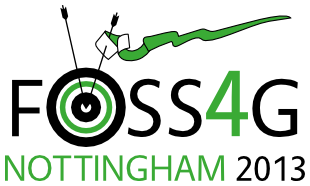Presentation
Integrating Collaborative Data Collection And Versioning Into Open Source Tools For Humanitarian Assistance/Disaster Relief.
David Askov (Pacific Disaster Center) with Chris Chiesa (Pacific Disaster Center), Scott Clark (LMN Solutions, LLC)
15:30 on Thursday 19th September (in Session 13, starting at 2 p.m., EMCC: Room 1)
Show in Timetable
ROGUE (Rapid Open Geospatial User-Driven Enterprise) is a 2-year project funded under the Joint Capability Technology Demonstration (JCTD) Program from the U.S. Department of Defense. It is scheduled to be completed in July 2014. Technical management is provided by the U.S. Army Corps of Engineers, with OpenGeo and LMN Solutions leading its technical implementation and the Pacific Disaster Center (PDC) serving in the role of project Transition Manager. The project’s goal is to improve the abilities of the OpenGeo Suite to ingest, update, and distribute non-proprietary feature data in a distributed, collaborative, and occasionally disconnected environment and then transition it into an operational environment by the end of the project. The charter for the ROGUE JCTD is to enable collaboration on geospatial feature data for distributed organizations and teams. This is being accomplished through a community effort based on the OpenGeo Suite, GeoNode, and GeoGit. While GeoGit provides data producers with a conduit to collaboratively develop and share geographic data, the GeoNode software is also being enhanced to leverage this capability for the discovery, display and dissemination of the data. By integrating these capabilities with Pacific Disaster Center’s DisasterAWARE platform, the DoD and mission partners are better able to plan, analyze, and collaborate using dynamic map data to support humanitarian and disaster response. PDC’s DisasterAWARE system presently supports ArcGIS Server REST format, so another aspect of the project is to develop a prototype of the GeoServices REST 1.0 candidate standard (derived from the “Esri GeoServices REST Specification Version 1.0”) to deliver the content from the OpenGeo Suite to PDC’s DisasterAWARE. This enables clients to ArcGIS Server REST services to consume map layers from the OpenGeo Suite via this new functionality. The ROGUE-enhanced OpenGeo suite will be integrated into PDC operations as well as its DisasterAWARE decision support application at the end of the project. This will greatly facilitate collaborative data development and management with key humanitarian assistance and disaster response stakeholder agencies to more effectively support disaster risk reduction activities around the globe.
